 New Jersey Gov. Chris Christie is embroiled in unfolding controversies over alleged political payback. The primary scandal involves suggestions key aides and supporters orchestrated traffic gridlock around the George Washington Bridge in Fort Lee last year to punish that town's mayor for not endorsing Christie's reelection. A separate controversy involves a federal watchdog's review of whether Christie improperly used Superstorm Sandy funds to produce tourism ads starring him and his family.
New Jersey Gov. Chris Christie is embroiled in unfolding controversies over alleged political payback. The primary scandal involves suggestions key aides and supporters orchestrated traffic gridlock around the George Washington Bridge in Fort Lee last year to punish that town's mayor for not endorsing Christie's reelection. A separate controversy involves a federal watchdog's review of whether Christie improperly used Superstorm Sandy funds to produce tourism ads starring him and his family.  Hoboken Mayor Dawn Zimmer claims New Jersey Lt. Gov. Kim Guadagno approached her in a parking lot last May and told her that Sandy recovery aid for her town depended on her support of a redevelopment project backed by the governor.
Hoboken Mayor Dawn Zimmer claims New Jersey Lt. Gov. Kim Guadagno approached her in a parking lot last May and told her that Sandy recovery aid for her town depended on her support of a redevelopment project backed by the governor.  Lt. Gov. Kim Guadagno denies telling Hoboken Mayor Dawn Zimmer that her town's Superstorm Sandy relief money depended on her support for a redevelopment project proposed by a company with ties to Gov. Chris Christie that he had backed.
Lt. Gov. Kim Guadagno denies telling Hoboken Mayor Dawn Zimmer that her town's Superstorm Sandy relief money depended on her support for a redevelopment project proposed by a company with ties to Gov. Chris Christie that he had backed. 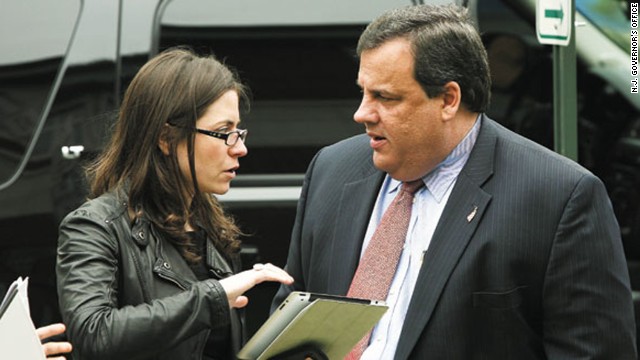 Maria Comella, a deputy chief of staff in Christie's office, had been monitoring the media reaction weeks after the George Washington Bridge traffic fiasco. She has been subpoenaed as part of the state legislative investigation.
Maria Comella, a deputy chief of staff in Christie's office, had been monitoring the media reaction weeks after the George Washington Bridge traffic fiasco. She has been subpoenaed as part of the state legislative investigation.  Randy Mastro, a former assistant U.S. Attorney for the Southern District of New York and a former deputy mayor of New York, will head the legal team representing the Christie administration in various investigations relating to the George Washington Bridge political scandal. He once a the federal racketeering lawsuit that forced the International Brotherhood of Teamsters to hold democratic elections and undergo court supervision.
Randy Mastro, a former assistant U.S. Attorney for the Southern District of New York and a former deputy mayor of New York, will head the legal team representing the Christie administration in various investigations relating to the George Washington Bridge political scandal. He once a the federal racketeering lawsuit that forced the International Brotherhood of Teamsters to hold democratic elections and undergo court supervision.  Reid Schar, a key figure in the federal prosecution of former Illinois Gov. Rod Blagojevich, will assist the special state Assembly committee investigating the bridge scandal that has engulfed current and former aides of New Jersey Gov. Chris Christie.
Reid Schar, a key figure in the federal prosecution of former Illinois Gov. Rod Blagojevich, will assist the special state Assembly committee investigating the bridge scandal that has engulfed current and former aides of New Jersey Gov. Chris Christie. 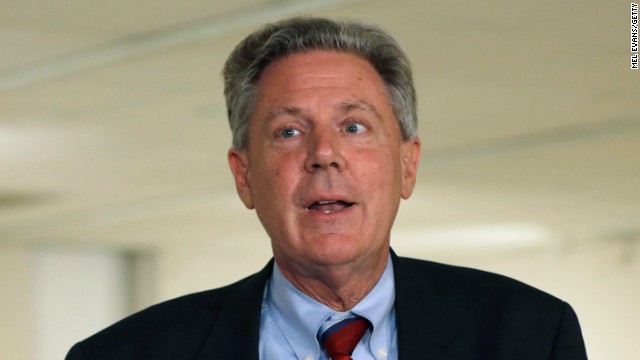 U.S. Rep. Frank Pallone of New Jersey, a Democrat, said he was concerned about the bidding process for using $25 million in Superstorm Sandy relief funds for a marketing campaign to promote tourism at the Jersey Shore.
U.S. Rep. Frank Pallone of New Jersey, a Democrat, said he was concerned about the bidding process for using $25 million in Superstorm Sandy relief funds for a marketing campaign to promote tourism at the Jersey Shore.  Bridget Anne Kelly, Gov. Chris Christie deputy chief of staff, was fired when her e-mail about "traffic in Fort Lee" became the center of a political scandal involving current and former aides to the governor. She has been subpoenaed by a state Assembly committee investigating the matter.
Bridget Anne Kelly, Gov. Chris Christie deputy chief of staff, was fired when her e-mail about "traffic in Fort Lee" became the center of a political scandal involving current and former aides to the governor. She has been subpoenaed by a state Assembly committee investigating the matter.  David Wildstein, a former top Christie appointee at the Port Authority of New York and New Jersey who is at the center of the George Washington Bridge political scandal, has been charged with contempt by state Assembly investigators in New Jersey for refusing to testify before their committee. He has been subpoenaed by a second panel now leading the probe.
David Wildstein, a former top Christie appointee at the Port Authority of New York and New Jersey who is at the center of the George Washington Bridge political scandal, has been charged with contempt by state Assembly investigators in New Jersey for refusing to testify before their committee. He has been subpoenaed by a second panel now leading the probe. 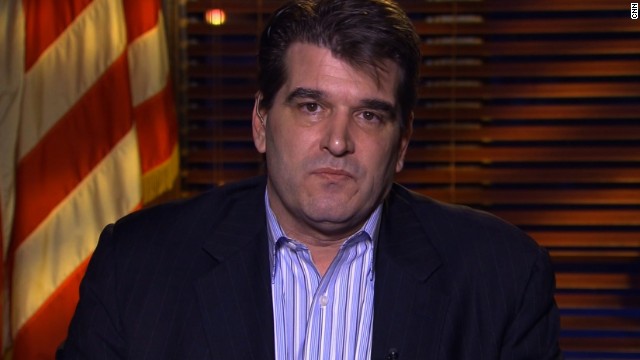 E-mails suggest that Fort Lee Mayor Mark Sokolich was the apparent target of an alleged political payback scheme involving traffic jams around the George Washington Bridge. He met with Chris Christie in early January to discuss the matter, and said the governor was "gracious and apologetic."
E-mails suggest that Fort Lee Mayor Mark Sokolich was the apparent target of an alleged political payback scheme involving traffic jams around the George Washington Bridge. He met with Chris Christie in early January to discuss the matter, and said the governor was "gracious and apologetic."  New Jersey Democratic Assemblyman John Wisniewski is chairman of the special state Assembly committee investigating the George Washington Bridge scandal. The panel has subpoenaed current and former top Christie aides as well members of his political organization, seeking documents and other materials. Chris Christie has not been subpoenaed but his office has.
New Jersey Democratic Assemblyman John Wisniewski is chairman of the special state Assembly committee investigating the George Washington Bridge scandal. The panel has subpoenaed current and former top Christie aides as well members of his political organization, seeking documents and other materials. Chris Christie has not been subpoenaed but his office has.  Michael Drewniak, Christie's chief spokesman, has been subpoenaed by a special state Assembly committee investigating the George Washington Bridge scandal. It is seeking documents and other materials. Although there is nothing to suggest Drewniak was involved in the scandal, e-mails released by investigators show he met with a key figure, David Wildstein, two days before Wildstein resigned from his job as a top Christie appointee at the Port Authority of New York and New Jersey.
Michael Drewniak, Christie's chief spokesman, has been subpoenaed by a special state Assembly committee investigating the George Washington Bridge scandal. It is seeking documents and other materials. Although there is nothing to suggest Drewniak was involved in the scandal, e-mails released by investigators show he met with a key figure, David Wildstein, two days before Wildstein resigned from his job as a top Christie appointee at the Port Authority of New York and New Jersey. 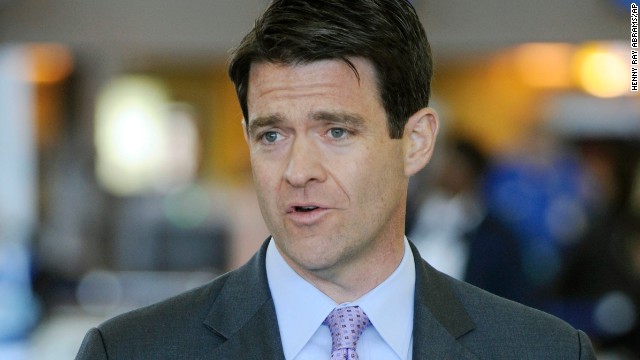 Bill Baroni was executive deputy director of the Port Authority until he resigned amid the scandal in December. New Jersey Gov. Chris Christie said Baroni accepted responsibility for not following the right protocols in carrying out a traffic study -- which was the reason initially given for traffic jams around the George Washington Bridge. He, too, has been subpoenaed by the state Assembly committee.
Bill Baroni was executive deputy director of the Port Authority until he resigned amid the scandal in December. New Jersey Gov. Chris Christie said Baroni accepted responsibility for not following the right protocols in carrying out a traffic study -- which was the reason initially given for traffic jams around the George Washington Bridge. He, too, has been subpoenaed by the state Assembly committee.  David Samson, Port Authority chairman, said its board had no knowledge of the George Washington Bridge traffic jam mess until five days after the fact. He has been subpoenaed by the state assembly committee and is also a partner and founding member of Wolff & Samson, the law firm that represented the Rockefeller Group in the Hoboken redevelopment plan.
David Samson, Port Authority chairman, said its board had no knowledge of the George Washington Bridge traffic jam mess until five days after the fact. He has been subpoenaed by the state assembly committee and is also a partner and founding member of Wolff & Samson, the law firm that represented the Rockefeller Group in the Hoboken redevelopment plan. 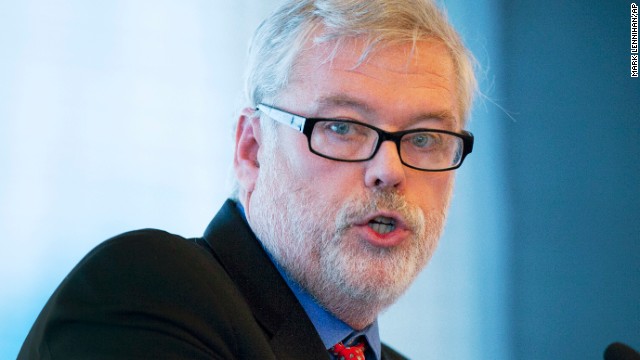 Patrick Foye, the executive director of the Port Authority, said access lane closures that resulted in the George Washington Bridge traffic mess didn't follow proper agency protocols. He ordered the lanes reopened and has been subpoenaed by the state Assembly committee as part of its investigation into the bridge scandal.
Patrick Foye, the executive director of the Port Authority, said access lane closures that resulted in the George Washington Bridge traffic mess didn't follow proper agency protocols. He ordered the lanes reopened and has been subpoenaed by the state Assembly committee as part of its investigation into the bridge scandal. 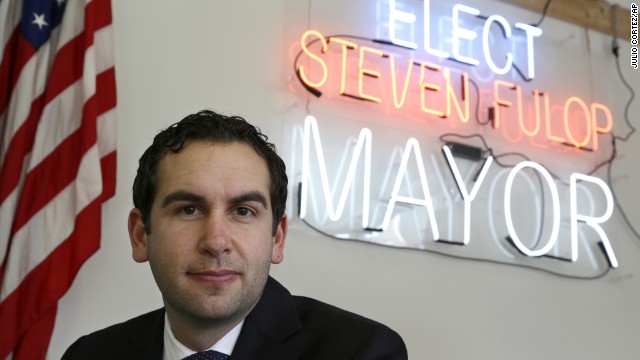 Jersey City Mayor Steven Fulop, a Democrat who also didn't endorse Christie, has raised his own suspicions about his cooled relationship with the administration.
Jersey City Mayor Steven Fulop, a Democrat who also didn't endorse Christie, has raised his own suspicions about his cooled relationship with the administration.  New Jersey Senate Majority Leader Loretta Weinberg, a Democrat, has been pressing for information about the scandal.
New Jersey Senate Majority Leader Loretta Weinberg, a Democrat, has been pressing for information about the scandal.  Democrat Barbara Buono is a New Jersey state senator who challenged Chris Christie this past November and lost in a landslide. She derided Christie during the campaign as representing "the worst combination of bully and bossism," and she brought up the George Washington Bridge traffic mess as an example.
Democrat Barbara Buono is a New Jersey state senator who challenged Chris Christie this past November and lost in a landslide. She derided Christie during the campaign as representing "the worst combination of bully and bossism," and she brought up the George Washington Bridge traffic mess as an example.  Bill Stepien managed Chris Christie's two successful campaigns for govenor. E-mails suggest he was aware of the bridge lane closures, and Christie has asked him to give up his political role. He, too, has been subpoenaed by the state committee investigating the matter.
Bill Stepien managed Chris Christie's two successful campaigns for govenor. E-mails suggest he was aware of the bridge lane closures, and Christie has asked him to give up his political role. He, too, has been subpoenaed by the state committee investigating the matter. 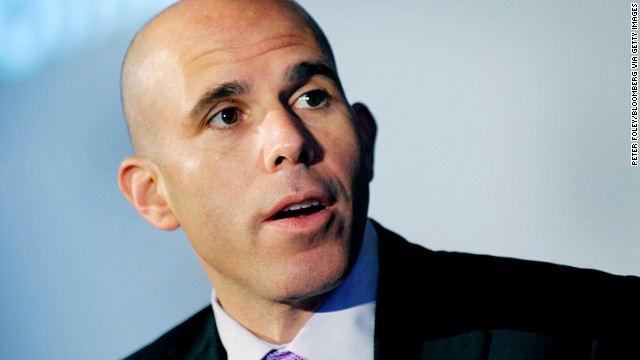 Scott Rechler, vice chairman of the Port Authority's board of commissioners, e-mailed other representatives of the agency saying he was disturbed that traffic was snarled "without regard to this being the Jewish high holiday weekend" last September. Rechler was appointed by New York Gov. Andrew Cuomo.
Scott Rechler, vice chairman of the Port Authority's board of commissioners, e-mailed other representatives of the agency saying he was disturbed that traffic was snarled "without regard to this being the Jewish high holiday weekend" last September. Rechler was appointed by New York Gov. Andrew Cuomo.  E-mails suggest Regina Egea, then a senior staffer and the governor's point person to the Port Authority and other agencies, was aware of concerns the George Washington Bridge lane closures were not part of an ongoing traffic study as the Christie administration initially claimed. She's now Christie's incoming chief of staff and has also been subpoenaed by the state Assembly committee.
E-mails suggest Regina Egea, then a senior staffer and the governor's point person to the Port Authority and other agencies, was aware of concerns the George Washington Bridge lane closures were not part of an ongoing traffic study as the Christie administration initially claimed. She's now Christie's incoming chief of staff and has also been subpoenaed by the state Assembly committee.
- Bridgegate has hit New Jersey Gov. Chris Christie's national prospects hard
- His response to the scandal seem credible in the short term, says Errol Louis
- Louis: The strategy was never quite plausible; Christie has a hands-on reputation
- Louis: Pushback from a former aide and fired education commissioner is damaging
Editor's note: Errol Louis is the host of "Inside City Hall," a nightly political show on NY1, a New York all-news channel.
(CNN) -- Less than three months after New Jersey Gov. Chris Christie cruised to an overwhelming reelection win, the main political question he faces isn't whether he can make a transition to the national stage and run for president -- it's whether he can continue to govern the state at all.
Negative press about the so-called Bridgegate scandal -- an apparent decision by top Christie aides to close lanes on the George Washington Bridge and snarl traffic for days on end, allegedly out of petty political spite toward local officials -- has taken a severe toll on Christie's national prospects: A recent poll confirms that he has tumbled from first to third place as a potential 2016 presidential candidate.
But that could prove to be the least of Christie's headaches. A more pressing matter is raised by a short, devastating letter penned by Alan Zegas, the lawyer for a former top aide to Christie, David Wildstein, and published on the New York Times website.
The immediate point of the letter was to press the Port Authority, the agency that operates the George Washington Bridge, to pay Wildstein's legal expenses. But it's not just a financial dispute.
If Wildstein, who personally oversaw the lane closures, was following orders requested or approved from on high, he can demand legal protection by the agency. But by refusing to cover his costs, the Port Authority is saying, in effect, that Wildstein was acting on his own.
The letter by Wildstein's attorney bluntly suggests otherwise: "It has also come to light that a person within the Christie administration communicated the Christie administration's order that certain lanes on the George Washington Bridge were to be closed, and evidence exists as well tying Mr. Christie to having knowledge of the lane closures, during the period when the lanes were closed, contrary to what the Governor stated publicly in a two-hour press conference."
Ouch.
 Gov. Christie faces new allegations
Gov. Christie faces new allegations  Was Christie really 'blindsided' by scandal?
Was Christie really 'blindsided' by scandal?  Christie's political future at stake?
Christie's political future at stake? The Christie administration hastily responded with a statement that the governor "had absolutely no prior knowledge of the lane closures before they happened and whatever Mr. Wildstein's motivations were for closing them to begin with."
But the damage was done: The scandal now has the potential to be carried directly into the inner circle of the Governor's office, and undermine his credibility.
Until now, Christie has employed a blunt but effective two-step strategy for containing the scandal. Step One: Summarily fire and publicly condemn deputies who were linked to the scandal. Step Two: Plead utter ignorance as to how or why these top aides would engage in unethical or illegal behavior.
The strategy was never quite plausible -- Christie, a former prosecutor, has a reputation as a hands-on manager whose aides don't stray far without permission -- and it's a risky gambit: By publicly denigrating fired members of his inner circle, Christie opens himself to the possibility of disgruntled ex-employees going public with information that is embarrassing, or even incriminating.
One can only imagine what Wildstein was thinking during Christie's two-hour press conference, in which he blasted Wilstein and another fired ex-aide, Bridget Ann Kelly, for "abject stupidity."
"What did I do wrong to have these folks think it was OK to lie to me?" he said during the press conference.
Adding insult to injury, Christie went so far as to say that Wildstein, often described in the press as a high school friend, wasn't really a Christie pal.
"David and I were not friends in high school. We were not even acquaintances in high school," Christie said. "We didn't travel in the same circles in high school. You know, I was the class president and athlete. I don't know what David was doing during that period of time."
At least one commentator, Michael Tomasky, thinks that personal snub might make Wildstein more inclined to turn on Christie. "What if Wildstein is sitting on some goods? Is he going to be happy being dismissed as too geeky for Christie to waste his time on back in high school?" Tomasky asks, concluding: "The nerd is striking back."
As a matter of political technique, Christie's swift firings and forceful denials seem credible in the short term -- but they also echo at least one time when the denounce-and-fire tactic backfired. In 2010, after New Jersey's request for millions in federal education funds was rejected -- in part because the final request lacked key budget estimates -- Christie publicly castigated and fired his education commissioner, Brett Schundler, allegedly for lying to him about what went wrong with the application.
But Schundler swiftly struck back, producing e-mails and other documents that showed he had, indeed, told Christie up front about the application's shortcomings.
"I will not accept being defamed by the Governor for something he knows I did not do," wrote Schundler. "The Governor called me a liar this week. That was the last straw."
The Schundler episode is important. Will Christie's strenuous denials of knowledge of Bridgegate -- and his suggestion that his top aides lied to him -- hold up under scrutiny?
Indeed, the state's most powerful newspaper, the Star-Ledger, is already warning Christie that the end may be near. Within hours of the publication of Wildstein letter suggesting Christie knew about Bridgegate, the paper published a hard-hitting editorial.
"If this charge proves true, then the governor must resign or be impeached. Because that would leave him so drained of credibility that he could not possibly govern effectively," the editorial says. "He would owe it to the people of New Jersey to stop the bleeding and quit."
For Christie, it's been a long, bumpy road. He began November with a spectacular reelection and a coveted spot on the cover of Time Magazine. He enters February with troubling hints that his governorship may be damaged beyond repair.
Follow us on Twitter @CNNOpinion.
Join us on Facebook/CNNOpinion.
The opinions expressed in this commentary are solely those of Errol Louis.
No comments:
Post a Comment